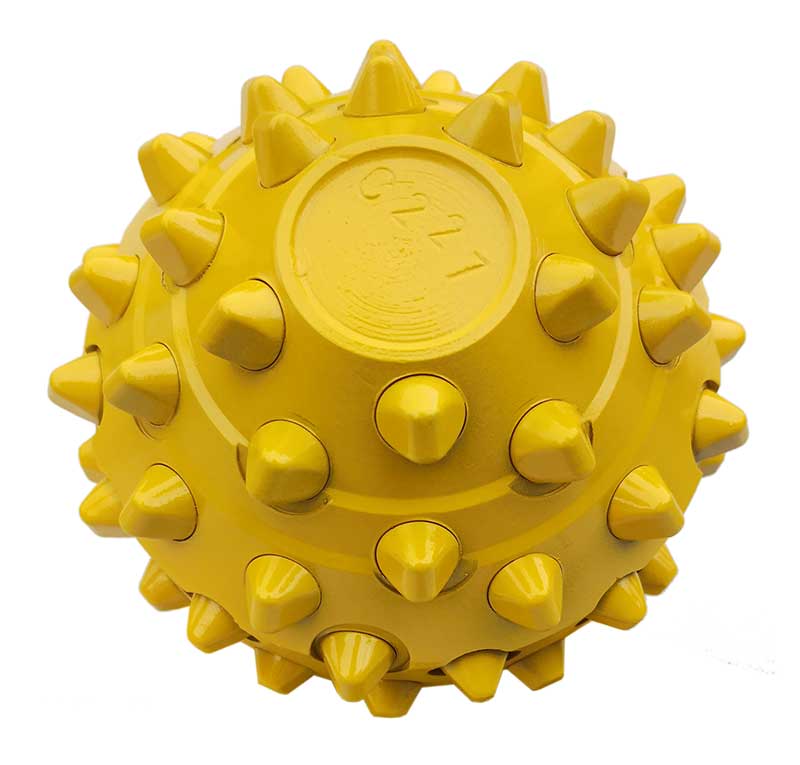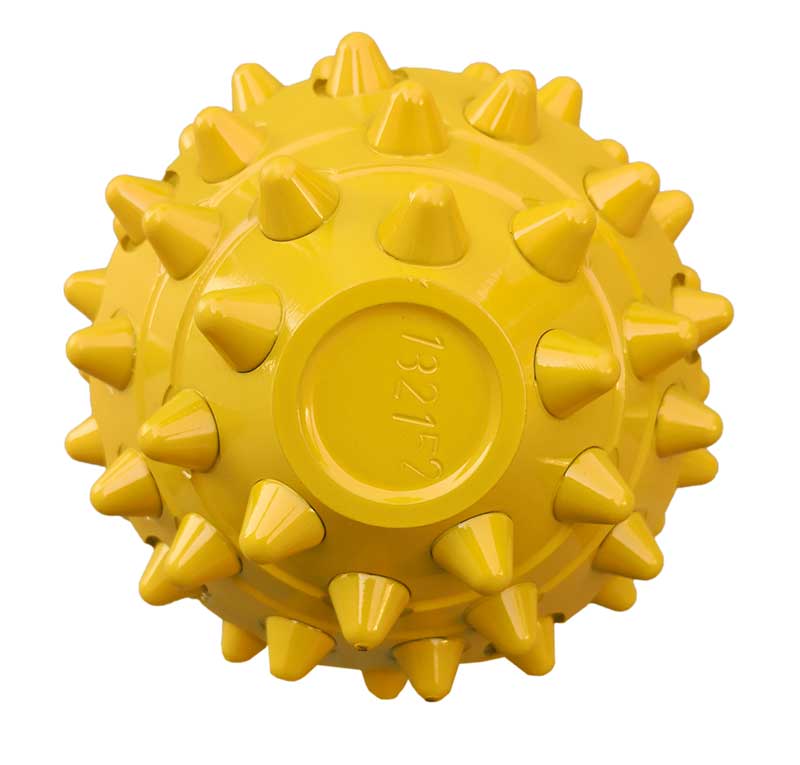Before choosing hole opener you need to confirm below point:
- The Rig you are using
- The Pulling/front connection or Trailing/back connection
- The Diameter of hole opener you need
- The Diameter of the stabilizer
- The Rock Strength you will deal with
As there is no one tool for all formation, just like you need proper screwdriver for the type of screw used, it is important to select the proper hole opener for the formations to be encountered on an HDD job. The advancements in the HDD industry and the engineering that has gone into the tooling offers underground contractors with exceptional options to get the job done. It all comes down to knowing what works best in each type of rock formation to be encountered.
Soft Rock Up To 7,000 PSI
Softer rock formations include the sedimentary rocks such as shales, coal and sandstone.
With soft rock formations a Milled Tooth Profile Hole Opener provides a much larger tooth surface compared to their Tungsten Carbide Insert (TCI) counter parts. Thus, Milled Tooth becomes an ideal choice when encountering harder alluvial soils and softer rock conditions.
This tooth surface is covered with a harder alloy usually made with tungsten carbide for added wear resistance. The tooth provides a scraping or gouging action that removes larger pieces of soil or rock which increases overall penetration rates.

Steel Tooth Profile
Medium Rock 7,000 – 18, 000 PSI
Consolidated metamorphic rock that has been subjected to high temperatures and high pressures. This includes Dolomite, Limestone, Marble, Granite and other igneous rock.
Here is where some overlap occurs based on the type of rock, the PSI (compressive strength), the Moe’s Hardness Scale and whether the rock is consolidated or unconsolidated.
In this category a contractor may opt for a TCI Hole Opener with a Chisel Tooth Profile. This will allow faster penetration speeds while also providing some insurance in case the rock becomes a bit more robust than anticipated. A Chisel Tooth Profile offers the contractor a carbide that mimics a Milled Tooth Hole Opener, but provides additional protection up to 18 to 20,000 psi formations.
Contractors may also opt for a TCI Hole Opener with a Conical Tooth Profile when encountering rock formations toward the upper range of this category. This profile has a smaller contact point compared to the chisel profile,which will result in smaller fragments which could reduce penetration rates but add protection against breakage.

Chisel Tooth Profile
Hard/Very Hard Rock 18,000 PSI and Up
Consolidated crystalline structures caused by the movement of the earth’s lithospheric plates where the heating and squeezing conditions form metamorphic rocks. This includes Basalt, Quartz, Taconite and some Granite.
The best tool to tackle the hard to very hard rock north of 18,000 psi is the Carbide Conical Tooth Profile Hole Openers. With hard rock formations the object is to exceed the rocks compressive strength in order to fracture and create small fragments that may be floated from the bore hole. Conical profile inserts offer the best insurance against breakage due to heavy loads applied to the Hole Openers while reaming.

Conical Tooth Profile
Refer to Trenchless TECHNOLOGY


